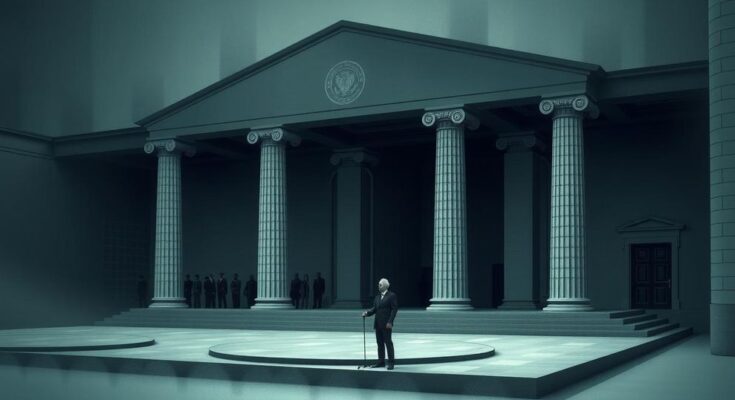In a notable setback for human rights advocacy, the U.S. Congress has failed to reauthorize the North Korean Human Rights Act (NKHRA). This law, first enacted in 2004 under President George W. Bush, aimed to uphold fundamental freedoms within North Korea but lapsed as Congress concluded its 118th session without approval from the Senate. The NKHRA’s reauthorization was sidelined amidst a focus on more pressing legislative matters, halting progress toward providing critical support for North Korean citizens.
The NKHRA sought to facilitate family reunifications between Korean Americans and relatives in North Korea, appoint a special envoy for human rights, and bolster U.S. broadcasting initiatives targeting the North Korean populace. As the newly elected 119th Congress prepares to convene, reintroducing this bill will be crucial, adding uncertainty to its uncertain future as lawmakers prioritize various issues. This marks the first time since its inception that the measure has been dormant for over two years, having traditionally been renewed three times previously.
Lawmakers pledged to revive the NKHRA in the upcoming session, with Representative Young Kim expressing her discontent over the Senate’s inaction. “Kim Jong Un subjects his own people to gross human rights abuses as he grows his nuclear arsenal, and the Senate is turning a blind eye to North Korean aggression,” she stated, reaffirming her commitment to pass the reauthorization in future sessions. Meanwhile, Representative Ami Bera shares a similar resolve, eager to collaborate with Senate counterparts to legislate bipartisan support once more.
As North Korea’s human rights issues compete with urgent global crises, experts express concern over the NKHRA’s diminishing focus. Robert King, former special envoy on North Korean human rights, highlighted the challenges posed by ongoing global conflicts that overshadow North Korea’s dire situation. Human rights advocates argue that the two-year lapse reflects a troubling trend of prioritizing other crises over North Korean needs, despite ongoing atrocities committed by the Kim regime.
The State Department categorically holds that North Korea remains one of the world’s most oppressive regimes, accusing it of extensive human rights violations. As North Korean troops engage in combat operations alongside Russian forces, concerns mount over the implications of such actions. The U.S. continues to recognize the urgency of addressing the grave human rights issues faced by North Koreans amid the complex geopolitical landscape that blurs their needs with broader global security concerns.
The U.S. Congress failed to reauthorize the North Korean Human Rights Act, which aimed at promoting human rights in North Korea. The bill was not discussed in the Senate, overshadowed by other legislative priorities. Lawmakers expressed their disappointment but pledged to reintroduce the bill in the next session, emphasizing the importance of addressing North Korean human rights amid global crises.
The recent inability of Congress to reauthorize the North Korean Human Rights Act highlights significant challenges in prioritizing human rights amid pressing global matters. Lawmakers, determined to revive these efforts in the upcoming session, emphasize the urgency of addressing the rampant human rights abuses within North Korea. The NKHRA’s future remains uncertain as it must compete with other critical legislative priorities, but the commitment of advocates indicates a continued push towards recognizing and rectifying these issues.
The North Korean Human Rights Act (NKHRA), originally enacted in 2004, symbolizes the U.S. commitment to advocating for basic freedoms and human rights in North Korea. The NKHRA encompasses measures aimed at addressing human rights abuses perpetrated by the North Korean regime, which are often overshadowed by pressing international issues. With North Korea facing increasing scrutiny over its human rights violations and military ambitions, maintaining focus on these issues is critical for U.S. lawmakers and advocates alike. The failure to reauthorize the NKHRA reflects broader challenges in prioritizing human rights amidst competing global crises, a situation further complicated by North Korea’s military activities involving Russia.
Original Source: www.voanews.com



